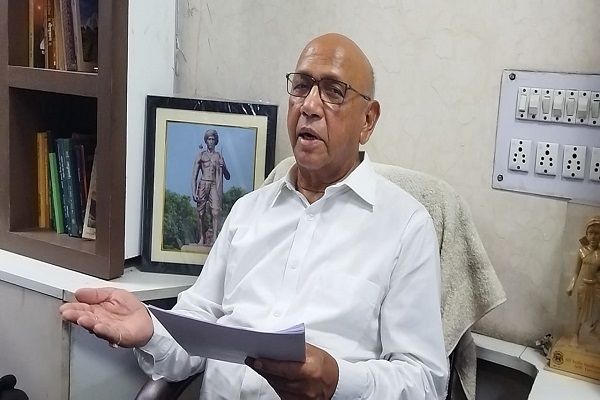
50th anniversary of samporn kranti: Recalling the movement on completion of 50 years of Sampoorna Kranti, former minister Saryu Rai said that fifty years ago there was a student movement in Bihar. End of corruption, inflation, unemployment and change in education policy were the main demands of this movement. When the movement turned into widespread violence during the siege of the Bihar Legislative Assembly by students on March 18, 1974, the student leaders requested Jayaprakash Narayan to take over the leadership to give direction to the movement. Under the leadership of JP, the student movement of Bihar became the mass movement of the country. He said that with the beginning of the year 2024, 50 years of that movement will be completed. March 18, 1974 is famous as the starting date of the movement, but its efforts had started three years earlier. Prime Minister Indira Gandhi got a huge majority in the 1971 Lok Sabha elections. Soon after Pakistan was disintegrated and Bangladesh was formed, his popularity skyrocketed. Leader of Opposition late Atal Bihari Vajpayee gave her the title of Durga, but within two years the popularity of Indira government vanished due to the strictness of the system.
The long term goal of the movement is total revolution.
In a huge public meeting on June 5, 1974, JP announced that the long-term goal of the movement is total revolution. On the same day, JP was honored with the title of Loknayak. When the then rulers had the audacity to declare the movement politically motivated and JP a CIA agent, JP called out that the goal of the total revolution is to change the system. With the intention of crushing the movement, emergency was imposed in the country at midnight on June 25, 1975. Supporters of the movement including JP were arrested and put in jail. Newspapers were censored.
Due to fear of agitation, the government extended the term of Parliament by one year.
Fearing anti-Emergency public support, the central government extended the term of Parliament by one year. The Lok Sabha elections to be held in 1976 did not take place. Meanwhile, under the pressure of JP’s leadership and public opinion, four national parties supporting the movement – Jan Sangh, Lok Dal, Socialist Party and Congress organization merged to form the Janata Party. In the Lok Sabha elections held under the shadow of emergency, the situation of power and opposition was like Ravana Rathi Virath Raghubira, but the public voted and also noted the candidates of Janata Party, born from the womb of the movement, whether they were inside or outside the jail. Gave. For the first time, the Congress government was ousted at the Centre. Indira Gandhi herself lost the election.
Also Read: 50 years of Total Revolution, know how the movement started, what was the proclamation
Campaign for system change buried at the juncture of power
There was a change of power, but at the first stage of the change of power the movement for change in the system disintegrated. If JP is no more, then there is no moral check on power. The remaining tasks were completed by the student and youth leaders who emerged during the JP movement through their political conduct. The campaign for system change was buried at the stage of power. Janata Party again disintegrated into its previous constituent parties. The result was that after 1974 the situation worsened several times, but such a movement did not arise. In the year of the golden jubilee of the student-youth movement of 1974, known as JP movement, the issues of total revolution are equally relevant even today.

